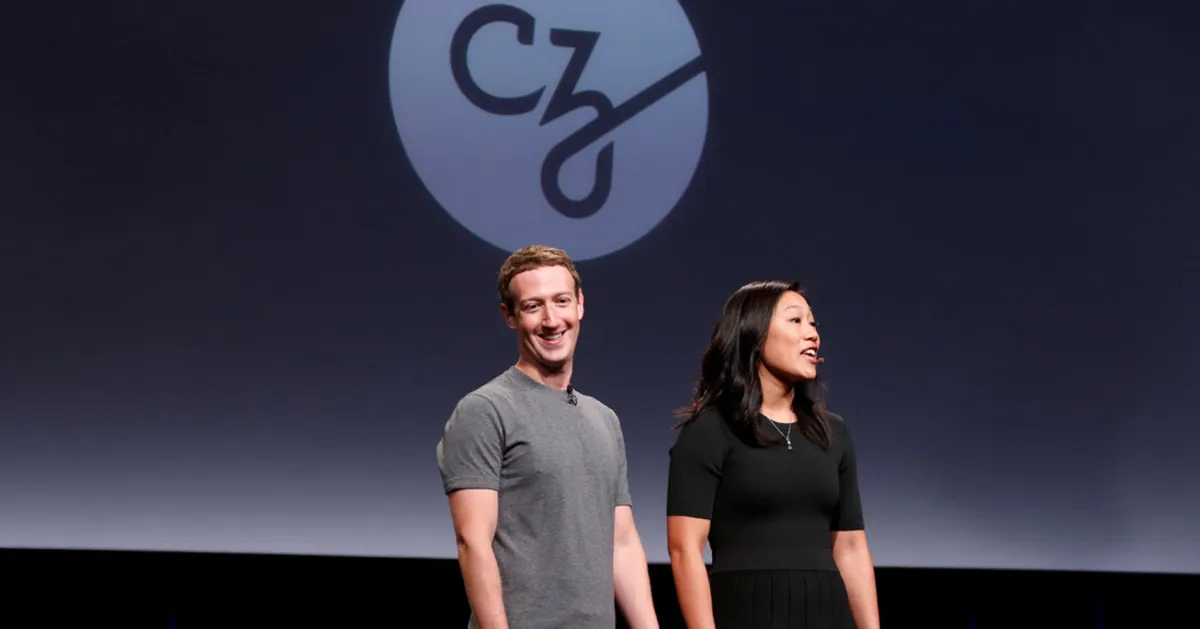
The Chan Zuckerberg Initiative (CZI), the philanthropic organization led by Meta's CEO Mark Zuckerberg and his wife, Dr. Priscilla Chan, has undergone a significant transformation in its mission over the years. Initially, CZI set out with ambitious goals to revolutionize American education, influence public policy, and even “cure all disease.” However, the organization has since narrowed its focus primarily towards science and technology, particularly artificial intelligence (A.I.).
On Thursday, the Chan Zuckerberg Initiative announced its first major restructuring, aimed at enhancing its commitment to scientific research. The organization revealed plans to concentrate its efforts on artificial intelligence and scientific advancement, guided by a network of research centers known as Biohub. This strategic pivot includes the acquisition of the team from the A.I. start-up Evolutionary Scale, with Alex Rives, the former chief scientist of the start-up, stepping in as the new head of science for CZI. Although the financial details of this acquisition were not disclosed, the move signals a deeper investment in A.I. capabilities.
In a recent interview held at Biohub’s office in Redwood City, California, Zuckerberg expressed that both he and Dr. Chan are eager to focus on initiatives with enduring impacts, stating they want to concentrate on something that wouldn’t be undone every few years. The emphasis on science and A.I. is expected to yield lasting, generational benefits, reflecting a commitment to long-term solutions in healthcare and research.
Since its inception in 2015, the Chan Zuckerberg Initiative has been one of the most prominent philanthropic endeavors, committing over $7 billion in grants over the past decade. Zuckerberg and Chan have pledged to donate nearly all of their wealth through CZI, which is estimated to reach around $256 billion. However, the organization’s engagement with political and social justice initiatives has evolved, leading to a shift away from these areas. Following the inauguration of President Trump in January, CZI discontinued its diversity-based recruiting practices and made significant staffing changes, affecting employees involved in its diversity initiatives.
In April, a school founded by Dr. Chan for low-income students announced its closure due to funding losses. Furthermore, in May, CZI ceased nearly all contributions to local housing nonprofits, reflecting a strategic withdrawal from previously pursued social programs.
The Chan Zuckerberg Initiative's renewed focus on science and A.I. aligns closely with the broader strategy of Meta, which owns popular platforms such as Facebook, Instagram, and WhatsApp. The tech giant has committed to investing at least $70 billion this year primarily to maintain its competitive edge in the rapidly evolving A.I. landscape. During the Biohub event, Zuckerberg and Chan committed to increasing the organization’s computing power from data centers by tenfold by 2028, specifically to bolster A.I.-driven biological research.
Upcoming projects highlighted by CZI include the development of a virtual cell mapping platform, a large language model capable of biological reasoning, and A.I. systems designed to analyze genetic sequences for disease detection. Biohub's scientists are aiming to leverage A.I. technology to conduct virtual experiments on an unprecedented scale and speed compared to traditional laboratory testing methods.
With the recent departure of Steve Quake, who previously led the science department at CZI, the organization is clearly repositioning itself for a future deeply intertwined with scientific innovation. Dr. Chan, a pediatrician by training, has emphasized that the organization sees its best return on investment in the realm of science. While CZI has reduced grant sizes for other sectors such as education and housing, it has assured that it will not completely eliminate its support in these areas.
As the Chan Zuckerberg Initiative continues to evolve, its commitment to science and artificial intelligence underscores a pivotal shift in philanthropic focus, with the potential to create a lasting impact in the fields of healthcare and research.